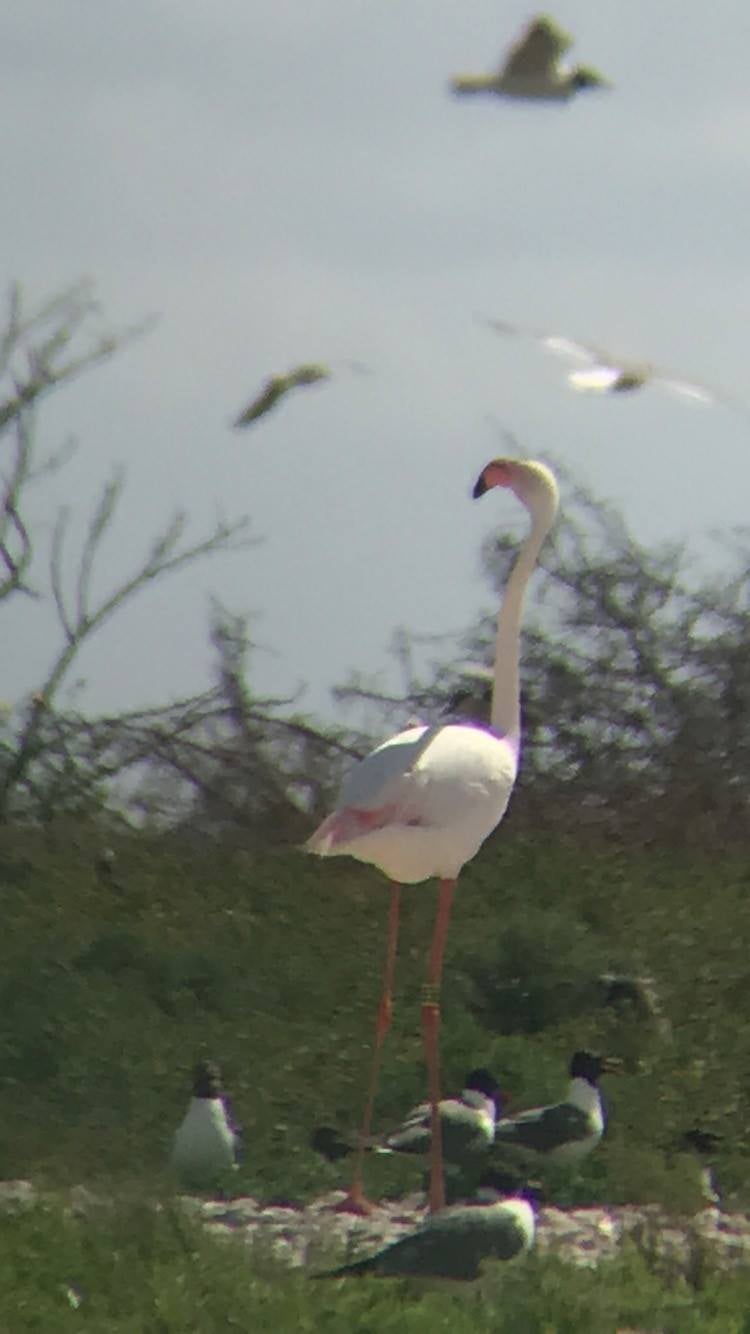Flamingo that escaped zoo filmed enjoying new life of freedom 17 years on
Bird has been spotted in Louisiana, Arkansas, and Texas

Your support helps us to tell the story
From reproductive rights to climate change to Big Tech, The Independent is on the ground when the story is developing. Whether it's investigating the financials of Elon Musk's pro-Trump PAC or producing our latest documentary, 'The A Word', which shines a light on the American women fighting for reproductive rights, we know how important it is to parse out the facts from the messaging.
At such a critical moment in US history, we need reporters on the ground. Your donation allows us to keep sending journalists to speak to both sides of the story.
The Independent is trusted by Americans across the entire political spectrum. And unlike many other quality news outlets, we choose not to lock Americans out of our reporting and analysis with paywalls. We believe quality journalism should be available to everyone, paid for by those who can afford it.
Your support makes all the difference.Pink Floyd, a flamingo who escaped a Kansas zoo in 2005, has been spotted on the Texas coast.
“Looks like Pink Floyd has returned from the ‘dark side of moon’!” the Texas Parks and Wildlife Department wrote on its Facebook.
The bird was spotted on 10 March at Rhodes Point in Cox Bay near the city of Port Lavaca, in southeastern Texas.
Pink Floyd is a flamingo originally from Tanzania, one of a pair of majestic birds who escaped the Sedgwick County Zoo in Wichita Kansas.
The flamingo was part of a group of 40 who arrived at the facility as adults. Normally, if they were adolescents, zookeepers would clip a section of the wing that hadn’t yet developed feeling to prevent the birds from flying away. However, upon accepting the adult birds, zookeepers opted to trim their feathers instead.
Pink Floyd and a fellow flamingo escaped the facility in 2005 after their feathers were allowed to grow longer than planned.
Since then, the pair has parted ways, with one of the birds flying to Michigan and likely perishing in the northern winter, while Pink Floyd has been spotted in Wisconsin, Louisiana, and Arkansas.
There are flamingos native to the Americas, but are more likely to be seen in South and Central America, as well as the Caribbean.
Pink Floyd, is thought to be about 27, and is approaching the life expectancy for a wild flamingo.
Since escaping, the African flamingo has at times been spotted with a Caribbean companion, who may have been blown to the US in a storm.
“Even though they’re two different species, they are enough alike that they would have been more than happy to see each other,” Scott Newland, curator of birds at Pink Floyd’s home zoo, told The New York Times. “They’re two lonely birds in kind of a foreign habitat. They’re not supposed to be there, so they have stayed together because there’s a bond.”
Though out of place, both birds have gravitated towards the shallow, salty wetlands where flamingos like to make their normal habitat.
Join our commenting forum
Join thought-provoking conversations, follow other Independent readers and see their replies
0Comments